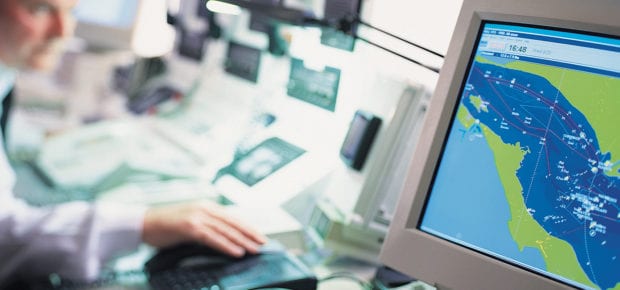August 14, 2019
Weather forecasts can make or break your day. If the analysis is correct, you wear the right clothing and all goes well. If it’s wrong, you can get soaked, you can overheat; the list goes on.
If you’re baffled by the lack of accuracy, it’s probably worth noting that the forecast itself isn’t that old. In fact, a weather predicting body wasn’t created until 1854 when the British government launched the Meteorological Department of the Board of Trade, which was focused on improving wind charts for ships.
Since then, weather technology has come a long way. We currently have an array of tools, including satellites that use laser pulses to measure wind velocity with extreme accuracy. The broad array of weather data we’re able to generate is crucial for research on weather prediction and climate trends.
What we use this data for goes well beyond figuring out whether we should bring an umbrella to work, and the number of applications is growing as the quality of data grows.
Using this weather data, researchers are working on some cutting-edge applications that could have a significant impact on public health, energy use and more:
- Preventing heat stroke: Researchers in Japan are combining anatomical models, core temperature algorithms, thermoregulatory response models, solar radiation models and weather data to predict the heat stroke threshold with 90% accuracy. That could enable cities to take precise preventative action during heat waves and save lives.
- Predicting power outages: A team from the University of Connecticut is building a new predictive model for power outages, incorporating wind, precipitation and soil data, as well as utility company data, land cover data and vegetation cover data. Their work has greatly reduced the margin of error of previous efforts. Advances like this could lead to a more resilient electric grid.
- Accurately estimating precipitation: Doppler radar is a familiar part of our forecasting toolkit, but it has traditionally relied on human eyes to identify clouds that are likely to cause precipitation. Researchers in China are working to make it much more accurate by using deep learning instead, which could mean much more accurate forecasts.
- Reducing energy use in data centers and industrial buildings: When multiple facilities perform the same task, weather data can be used to delegate to the most efficient one. For example, by using a weather-aware scheduling algorithm, researchers proactively delegated workloads to data centers that had the smallest temperature difference between indoors and out, which resulted in a 40% savings in cooling energy. A similar strategy is being applied to the scheduling of key activities in industrial buildings (machine work, loading, packing and office work) so that they require the least amount of HVAC energy.
The feasibility of this research is largely dependent on the sensors that provide this weather data. That will be an interesting technological frontier to watch, especially as we usher in the era of 5G and the sensors that come along with it.





 Meaningful Momentum or Running in Place?
Meaningful Momentum or Running in Place? AI Through Our Ages
AI Through Our Ages Liquid Infrastructure: Our Planet's Most Precious Resource
Liquid Infrastructure: Our Planet's Most Precious Resource The Impact of Technology in 2025
The Impact of Technology in 2025 Quantum and AI: Safeguards or Threats to Cybersecurity?
Quantum and AI: Safeguards or Threats to Cybersecurity? Why AI Can't Live Without Us
Why AI Can't Live Without Us Bits, Bytes, Buildings and Bridges: Digital-Driven Infrastructure
Bits, Bytes, Buildings and Bridges: Digital-Driven Infrastructure Impact of Technology in 2024
Impact of Technology in 2024 Emerging AI Cybersecurity Challenges and Solutions
Emerging AI Cybersecurity Challenges and Solutions The Skies are Unlimited
The Skies are Unlimited Smart Cities 2030: How Tech is Reshaping Urbanscapes
Smart Cities 2030: How Tech is Reshaping Urbanscapes Impact of Technology 2023
Impact of Technology 2023 Cybersecurity for Life-Changing Innovations
Cybersecurity for Life-Changing Innovations Smarter Wearables Healthier Life
Smarter Wearables Healthier Life Infrastructure In Motion
Infrastructure In Motion The Impact of Tech in 2022 and Beyond
The Impact of Tech in 2022 and Beyond Cybersecurity, Technology and Protecting Our World
Cybersecurity, Technology and Protecting Our World How Technology Helps us Understand Our Health and Wellness
How Technology Helps us Understand Our Health and Wellness The Resilience of Humanity
The Resilience of Humanity Harnessing and Sustaining our Natural Resources
Harnessing and Sustaining our Natural Resources Creating Healthy Spaces Through Technology
Creating Healthy Spaces Through Technology Exceptional Infrastructure Challenges, Technology and Humanity
Exceptional Infrastructure Challenges, Technology and Humanity The Global Impact of IEEE's 802 Standards
The Global Impact of IEEE's 802 Standards Scenes of our Cyber Lives: The Security Threats and Technology Solutions Protecting Us
Scenes of our Cyber Lives: The Security Threats and Technology Solutions Protecting Us How Millennial Parents are Embracing Health and Wellness Technologies for Their Generation Alpha Kids
How Millennial Parents are Embracing Health and Wellness Technologies for Their Generation Alpha Kids Space Exploration, Technology and Our Lives
Space Exploration, Technology and Our Lives Global Innovation and the Environment
Global Innovation and the Environment How Technology, Privacy and Security are Changing Each Other (And Us)
How Technology, Privacy and Security are Changing Each Other (And Us) Find us in booth 31506, LVCC South Hall 3 and experience the Technology Moon Walk
Find us in booth 31506, LVCC South Hall 3 and experience the Technology Moon Walk Virtual and Mixed Reality
Virtual and Mixed Reality How Robots are Improving our Health
How Robots are Improving our Health IEEE Experts and the Robots They are Teaching
IEEE Experts and the Robots They are Teaching See how millennial parents around the world see AI impacting the lives of their tech-infused offspring
See how millennial parents around the world see AI impacting the lives of their tech-infused offspring Take the journey from farm to table and learn how IoT will help us reach the rising demand for food production
Take the journey from farm to table and learn how IoT will help us reach the rising demand for food production Watch technical experts discuss the latest cyber threats
Watch technical experts discuss the latest cyber threats Explore how researchers, teachers, explorers, healthcare and medical professionals use immersive technologies
Explore how researchers, teachers, explorers, healthcare and medical professionals use immersive technologies Follow the timeline to see how Generation AI will be impacted by technology
Follow the timeline to see how Generation AI will be impacted by technology Learn how your IoT data can be used by experiencing a day in a connected life
Learn how your IoT data can be used by experiencing a day in a connected life Listen to technical experts discuss the biggest security threats today
Listen to technical experts discuss the biggest security threats today See how tech has influenced and evolved with the Games
See how tech has influenced and evolved with the Games Enter our virtual home to explore the IoT (Internet of Things) technologies
Enter our virtual home to explore the IoT (Internet of Things) technologies Explore an interactive map showcasing exciting innovations in robotics
Explore an interactive map showcasing exciting innovations in robotics Interactively explore A.I. in recent Hollywood movies
Interactively explore A.I. in recent Hollywood movies Get immersed in technologies that will improve patients' lives
Get immersed in technologies that will improve patients' lives